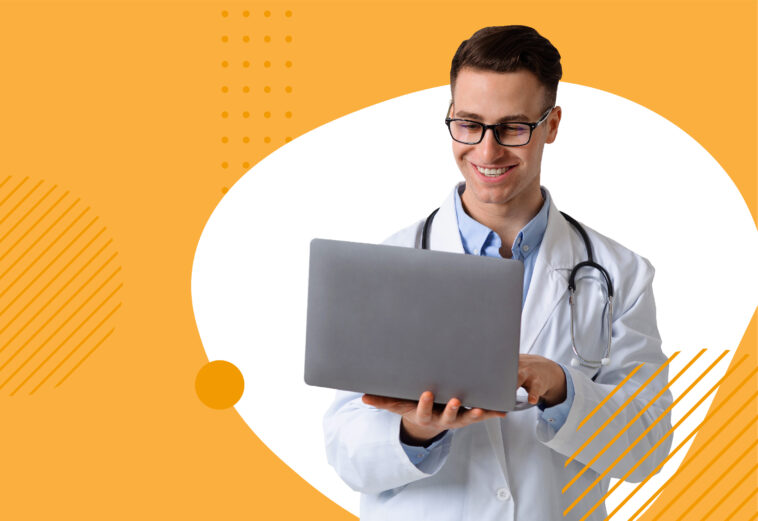Healthcare is one of the industries that is constantly evolving and changing for the better. The industry includes surgeons, device makers, health insurance companies, etc., and provides a wide range of services, beginning from preventive to diagnostic and therapeutic medical services. Owing to the emergence of new illnesses, the constantly changing patient demographics, rising medical costs, changing consumer expectations, makes the industry extremely dynamic. In addition to changing the way businesses work, these changes can create a myriad of other challenges.
Tools such as the learning management system allow practitioners to make use of the learning opportunities without impacting their work. Medical practitioners will now no longer have to sit in the classroom or meeting for long periods of time. Instead, they can use online learning resources to keep yourself up to date anytime, anywhere. This saves valuable time and effort. In addition to advanced reporting, the Healthstream Learning Center provides features similar to other LMSs, like helping employers track employee progress in a more organized and effective way. You can learn more about Healthstream Learning Center here.
Learning management systems also benefits healthcare providers in many other ways. Here are some of them:
Make your training program flexible
Evolving industry standards and health requirements require professionals to be informed about the latest innovations in all other aspects of diagnostics, treatment and healthcare. However, you cannot spend a lot of time in a traditional classroom or attend a training course. Therefore, it takes a long time to care for the patient. How would you address this challenge? The answer is e-learning. Health professionals need flexibility in their training schedules and LMS is the best way to do that.
Access your training materials anytime, anywhere using any type of device, including mobile phones, tablets, PCs and laptops. This allows learners to read materials at their own pace and sign up for courses that are most relevant to their role. The best part is that you don’t have to take the entire course in one session. If the work schedule allows, it can be completed gradually. LMS also supports both guided and self-determined learning. This makes it easy to provide healthcare professionals with the benefits of blended learning.
Helps your students and employees with collaborative learning

We all know how important classroom-based instructor-led training (ILT) is in the medical industry. Since the medical industry is a sensitive field, it is not possible to have the entire learning or training process through eLearning. However, the formative learning, or the training of the huge workforce of healthcare providers can be done through self-paced learning courses, video lectures, and social learning. So, an ideal LMS must provide integrated learning by combining the elementsILT and eLearning.
Improves knowledge retention
Intensive training courses for healthcare professionals are useless if you don’t have important information. Unfortunately, many studies have shown that employees have very low knowledge retention rates. It is estimated that people forget about 50 to 70 percent of what they have learned in a day. Such retention statistics can be daunting, especially when taking into account the average investment per employee that a company spends on education and training programs.
However, implementing LMS can help you overcome this hurdle. You can include a variety of fun and interactive elements in your training program, such as stimuli and branching scenarios. This can improve employee involvement and knowledge retention. In addition, 24/7 access to course materials means that learners can refer to them when they need them. 3.
SOP training

SOP stands for Standard Operating Procedure. Healthstream learning center has features that describe the steps to perform these operations in accordance with industry standards and business guidelines. It is important that all employees make the most of their knowledge and beliefs and follow these SOPs. However, as mentioned earlier, health care is a very dynamic industry. Therefore, the SOP is constantly changing.
Employers cannot arrange personal training for each change. This is where LMS has the upper hand. This allows employers to provide relevant information in real time to employees in all departments. This reduces the risk of mistakes and fraud in the workplace. An LMS provides a secure and proper framework for organizing, providing, and managing compliance training to health care employees.
Automated Compliance Management
Healthcare is a high-stakes and high-regulation field. One slip or one miss can be heavily penalised. Hence standards and regulations are extremely important in this sector. And they are constantly revised to mitigate the risks of this high-risk environment. Every healthcare worker needs to understand and be well versed with these compliances before they begin providing their service. It also helps by creating a compliance culture among employees instead of making it a boring task.
Reduce employee turnover

Education and training play an important role in reducing employee turnover. Employees feel respected and respected as companies strive to create an exciting learning environment. In addition, appropriate training courses help employees work more efficiently. You can create multiple courses at the same time with the right onboarding and training prices, and employees can choose the course that suits their job. Doctors, nurses, counselors, technicians, etc. can take courses that may be relevant to their work.
Healthcare e-learning is a must for student development because it will increase their level of knowledge.
Conclusion
This list is not exclusive, but it is enough to point out that there are many ways the healthcare industry can benefit from using LMS. There are numerous LMS present in the industry now, and you will need an LMS that will suit your medical personnel and the accounting department while keeping the budget within the financial plan. Hence choosing the apt one for your organisation might be a lengthy process.
The healthstream learning center features have proven to be an integral part of critical L&D activities in the complicated world of healthcare by applying capability and reach to address various types of learning requirements, methods, and intended results. It helps to drive organizational productivity, employee competence, and, as a result, revenue-earning while complying with a variety of standards and norms. With the right LMS, companies can create an informed and productive workforce, while providing the best healthcare products and services to the community.




